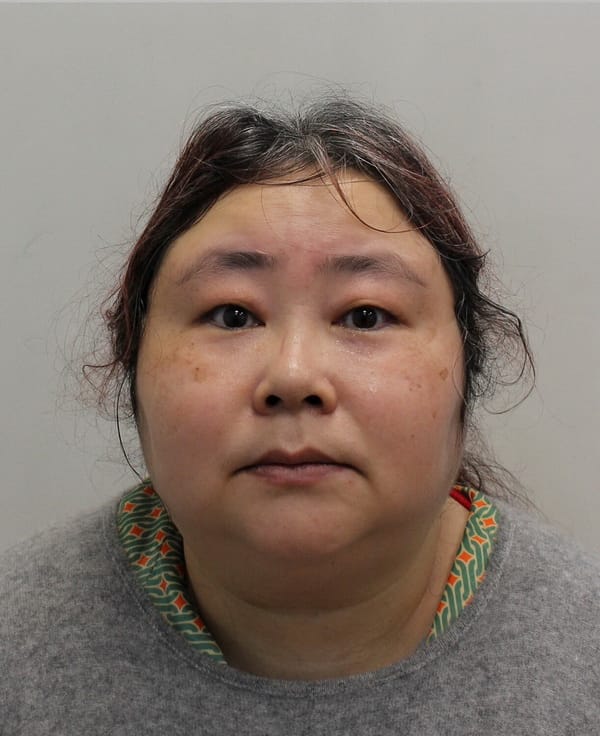'Bitcoin Queen' Sentenced to 11 Years for Laundering $7.3 Billion Crypto Pyramid Scheme

A London court sentenced 47-year-old Chinese national Zhimin Qian, also known as Yadi Zhang, to 11 years and 8 months in prison for laundering bitcoin from China's largest cryptocurrency investment pyramid scheme. The fraud affected over 128,000 victims between 2014 and 2017, causing losses exceeding $7.3 billion.
Record-Breaking Cryptocurrency Seizure
An international investigation by British and Chinese law enforcement spanning seven years resulted in the seizure of 61,000 bitcoins. While worth hundreds of millions of pounds at the time of seizure, the cryptocurrency's current value has reached £5.5 billion (approximately $7.3 billion)—making this the largest cryptocurrency seizure in UK history.

This surpasses even the US Department of Justice's 2022 seizure of over 94,000 bitcoins valued at $3.6 billion linked to the Bitfinex exchange hack.
In addition to the bitcoins, authorities seized £11 million ($14.4 million) in assets from Qian, including crypto wallets, encrypted devices, cash, and gold.
The 'Blue Sky' Pyramid Scheme
From 2014 to 2017, Qian operated a massive financial pyramid scheme called Lantian Gerui ("Blue Sky" in Chinese). The company claimed to invest in high-tech health products and bitcoin mining, ultimately raising over 40 billion yuan (approximately $5.6 billion) from roughly 130,000 investors by promising returns of 100% to 300%.
Many victims invested their entire pension savings and life savings into the scheme. During this period, Qian earned the nickname "Bitcoin Queen" by actively promoting cryptocurrency and calling bitcoin "digital gold."
Flight to the UK
When the pyramid collapsed in 2017 and attracted Chinese authorities' attention, Qian converted all funds from "investors" into bitcoin and fled to the UK using a fake identity with forged documents.
After arriving in September 2017, Qian hired assistants and rented a mansion in a prestigious London neighborhood for £17,000 (approximately $23,000) per month. She traveled across Europe and Southeast Asia, staying in expensive hotels and purchasing luxury jewelry and watches. She also attempted to launder the cryptocurrency by buying elite real estate in London and Dubai.
Seven-Year Pursuit
In October 2018, British law enforcement received information about an attempt to liquidate criminal assets in London and began investigating. Authorities first got on Qian's trail and searched her London mansion. However, the fraudster was living under the fake name Yadi Zhang, and investigators had not yet discovered her true identity.
After the search, Qian left London and evaded justice for nearly six years. She was finally arrested in 2024 in the city of York. Her assistant and accomplice, Jian Wen, was arrested earlier in May 2021 at the same mansion and later sentenced to 6 years and 8 months in prison for money laundering assistance.
Lavish Aspirations
During the search, police found Qian's diary documenting her "aspirations and intentions." She wanted to become queen of Liberland—a self-proclaimed micronation between Croatia and Serbia—and dreamed of "meeting the Duke and members of the royal family."
Additional Convictions
Another participant in the fraud scheme was also convicted: 47-year-old Seng Hok Ling from Derbyshire, who helped Qian rent property and conducted cryptocurrency transfers. He received 4 years and 11 months for transferring unlawfully obtained property (cryptocurrency), though his lawyer claimed he was unaware of the full scale of Qian's crimes.
Uncertain Fate of Seized Bitcoin
The seized bitcoins could now be used to compensate victims or retained by British authorities. No decision has been made, and the UK Treasury has not yet commented on the situation.
Key Takeaway
This case represents one of the largest cryptocurrency fraud prosecutions in history and demonstrates international law enforcement's growing capability to track and seize digital assets. The seven-year investigation and eventual conviction show that cryptocurrency's pseudo-anonymous nature does not guarantee immunity from prosecution, even when criminals flee across international borders.


